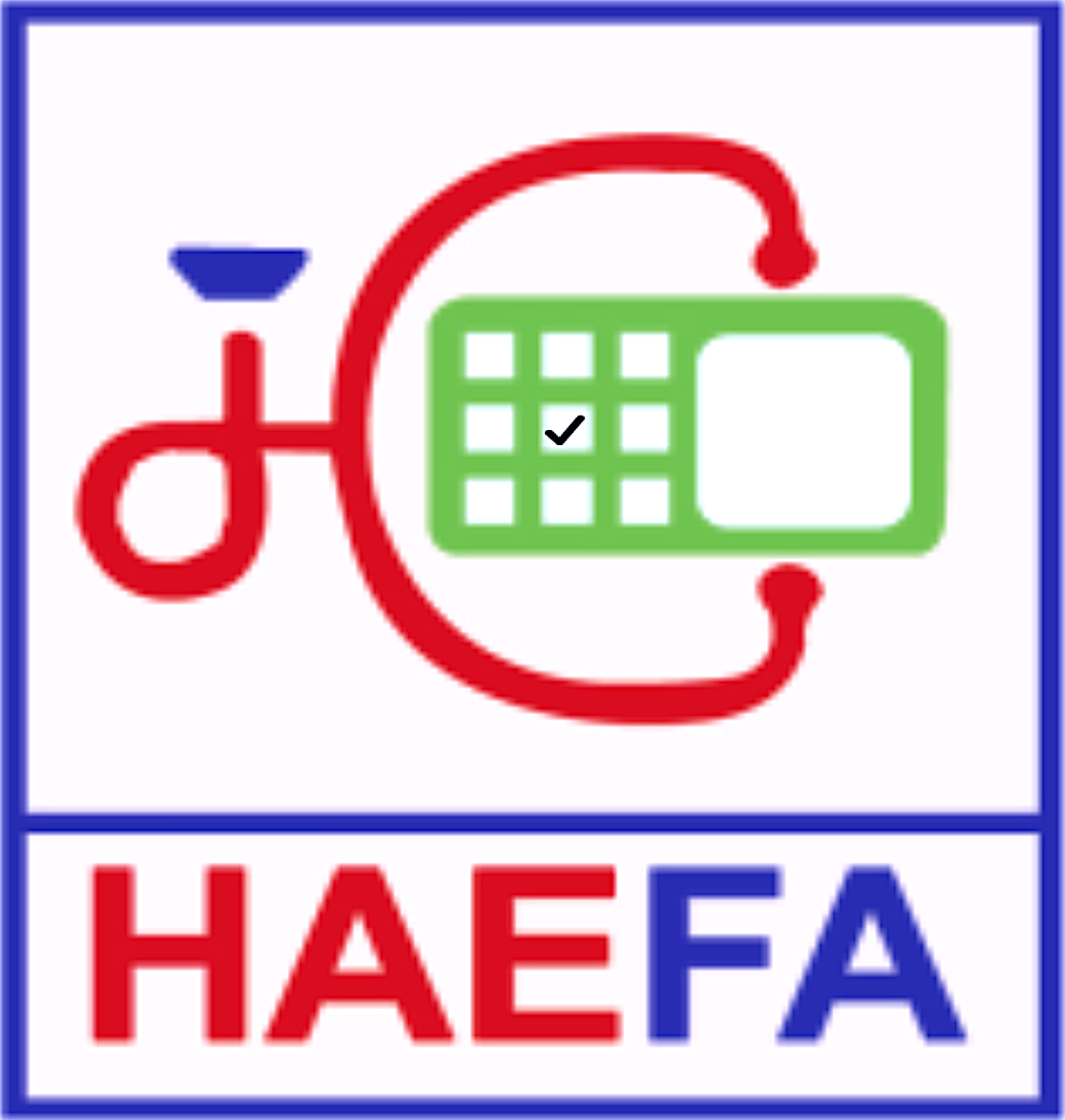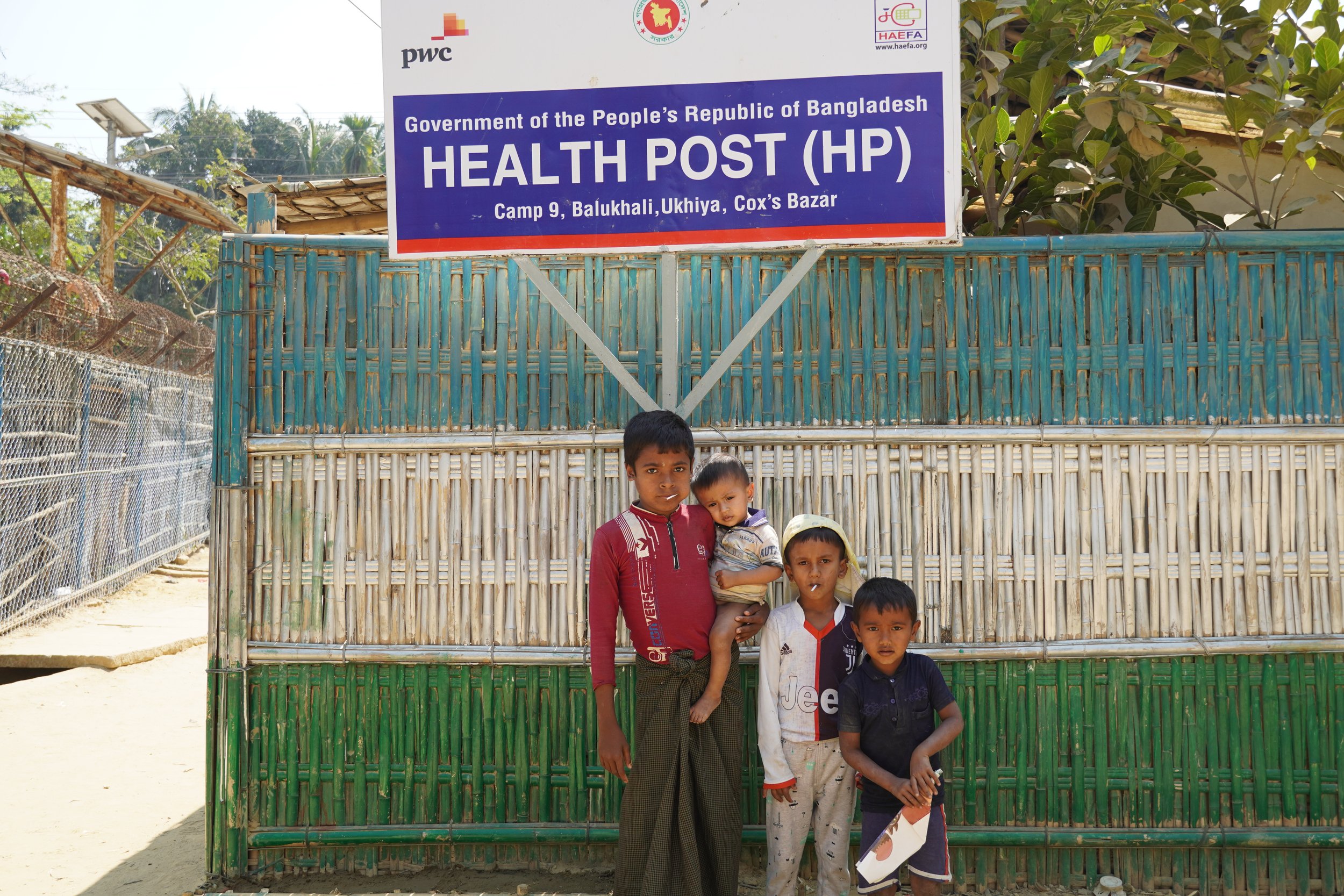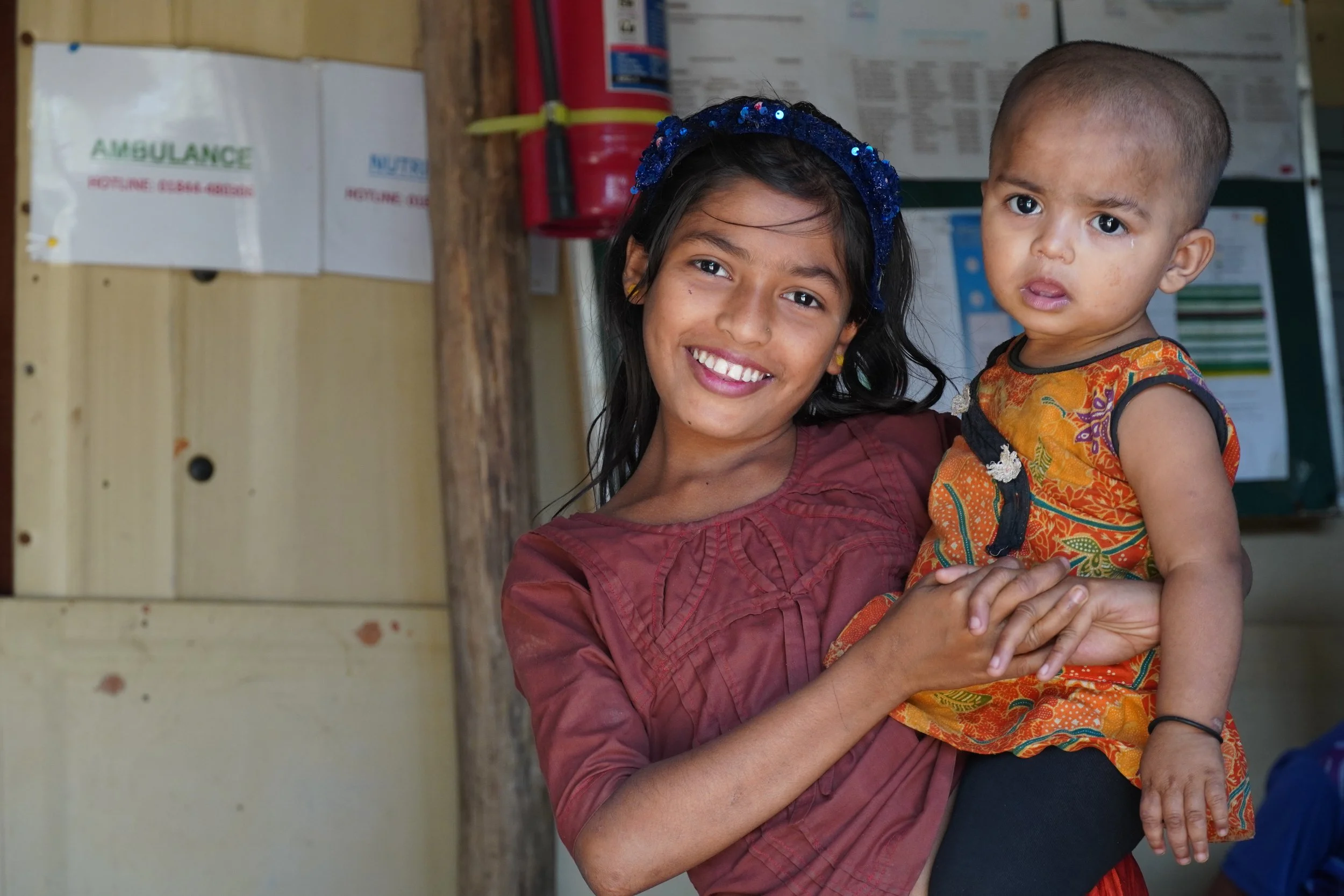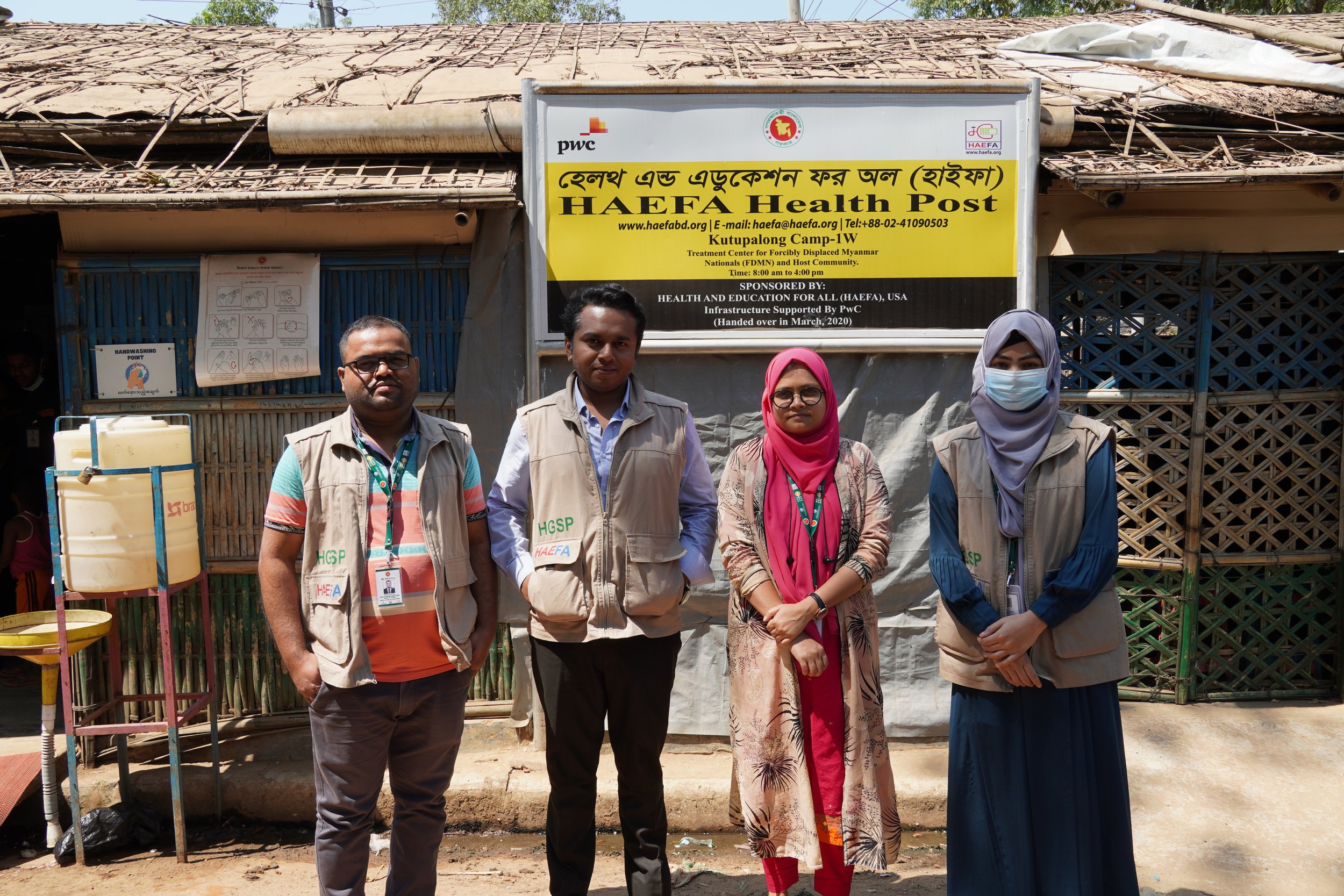Background
In October 2017, Myanmar’s Rakhine state launched a brutal attack on the Rohingya community, a primarily Muslim ethnic minority. This forced hundreds of thousands to flee to neighboring Bangladesh, specifically the southeastern district of Cox’s Bazar. Seven years since the crackdown, the population has reached nearly one million people, making it one of the world's largest and most densely populated refugee camps. Officially defined as “Forcibly Displaced Myanmar Nationals” (FDMNs), the Rohingya people are not recognized as citizens in either country, making them the largest stateless population in the world.
Since the beginning of the crisis, HAEFA has operated two health posts within the camps, in Kutupalong and Balukhali (Camp 1W and 9 respectively). These camps have grown and adapted throughout the years, making improvements to best serve the community within the resource-limited environment.
Boys stand outside HAEFA’s Health Post at Camp 9
Waiting room of the 1W Health Post
An insider’s view
I spoke with Dr. Fairuz Homayara Faria and Mst. Afroza Akter, to gain an inside view on what it’s like to work at these health posts.
Dr. Fairuz Homayara Faria works as one of the two medical officers at Camp 9. Throughout the day, she counsels patients on everything from hypertension and diabetes to family planning and maternal care. Reflecting on her start at HAEFA, she recounts, “I joined HAEFA in 2021 when the pandemic was going on. It was quite a risky job but I did it anyway. I always wanted to work in this region. I had an interest in refugee camps and I always wanted to see what kind of experience they have here.”
Dr. Fairuz Homayara Faria enters information in NIROG
When asked about what makes the Health Posts unique, she notes HAEFA’s emphasis on non-communicable disease (NCD) screening. Before seeing the physician, all patients have their vitals measured to be screened for NCDs like hypertension and diabetes.
Additionally, most prescriptions are limited to 7 days, ensuring that the patients return and are assessed weekly, to best monitor and manage their condition. Dr. Faria explains that “weekly check-ups and blood sugar monitoring don’t happen in all facilities. We have a very good follow-up system here.” HAEFA’s routine care is aided by the use of NIROG, a digitalized electronic medical record system.
She also notes how HAEFA prioritizes personalized and private consultations; “Other health workers or clinics don’t provide this kind of counseling.”
All patients are screened for NCDs
Patient at camp 9 holds his Health record book and NIROG ID card
However, the job is not short of challenges. Dr. Faria tells me that the hardest part of her job is navigating cultural and communication barriers. “They are very stubborn about about follow-up and medicine intake.”
Akter, who has been working with HAEFA for two years, expands upon these challenges. Working as a Midwife, she counsels every female patient of reproductive age on the importance of family planning. She helps them navigate contraceptive use, providing different options such as condoms, injectable contraceptives, and oral contraceptives. This is an essential role within the camps, as the high rate of pregnancy and population growth is straining the already limited resources. Akter reiterates the complicated cultural barriers stating that, “it’s very difficult to convince them because they are very conservative.”
Midwife Mst. Afroza Akter
All women are counseled on family planning
More than half of all Rohingya refugees in Bangladesh (52 percent) are children
Despite facing obstacles, both women remain committed to serving this population and have undoubtedly made a positive impact. Akter mentions that while slow, she is noticing a greater awareness of family planning, with “more Rohingya taking contraceptives.”
Additionally, Dr. Faria notes that HAEFA’s service is appreciated by the community. “The patients that get treated here are very happy and have expressed so much gratitude.”
In the future, Dr. Faria hopes to return to hospital work but adds: “I have enjoyed working here for the past three years. … I will remember this experience for the rest of my life.” Akter also positively reflects on working at HAEFA, telling me that “the whole team is like a family.”
The clinical team at Camp 1W
To read more about HAEFA’s work in the FDMN camps, click here.











